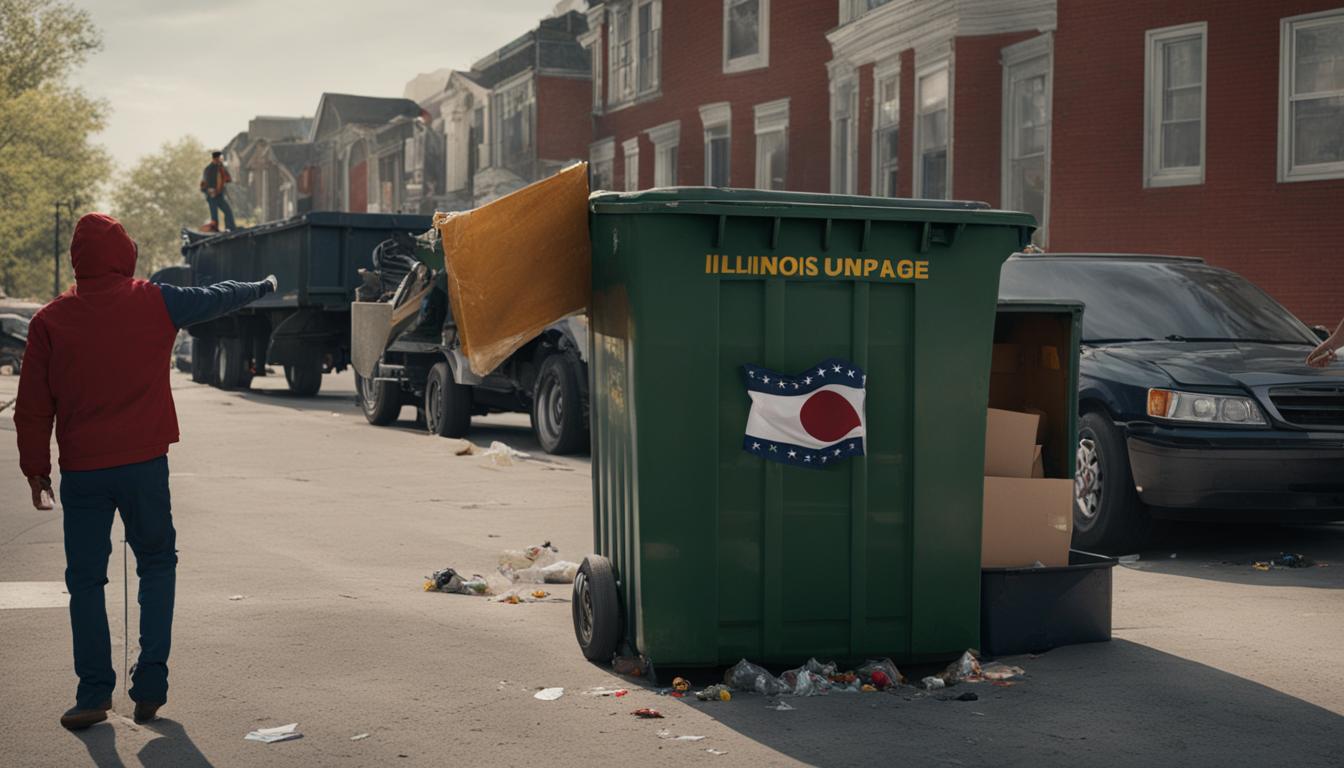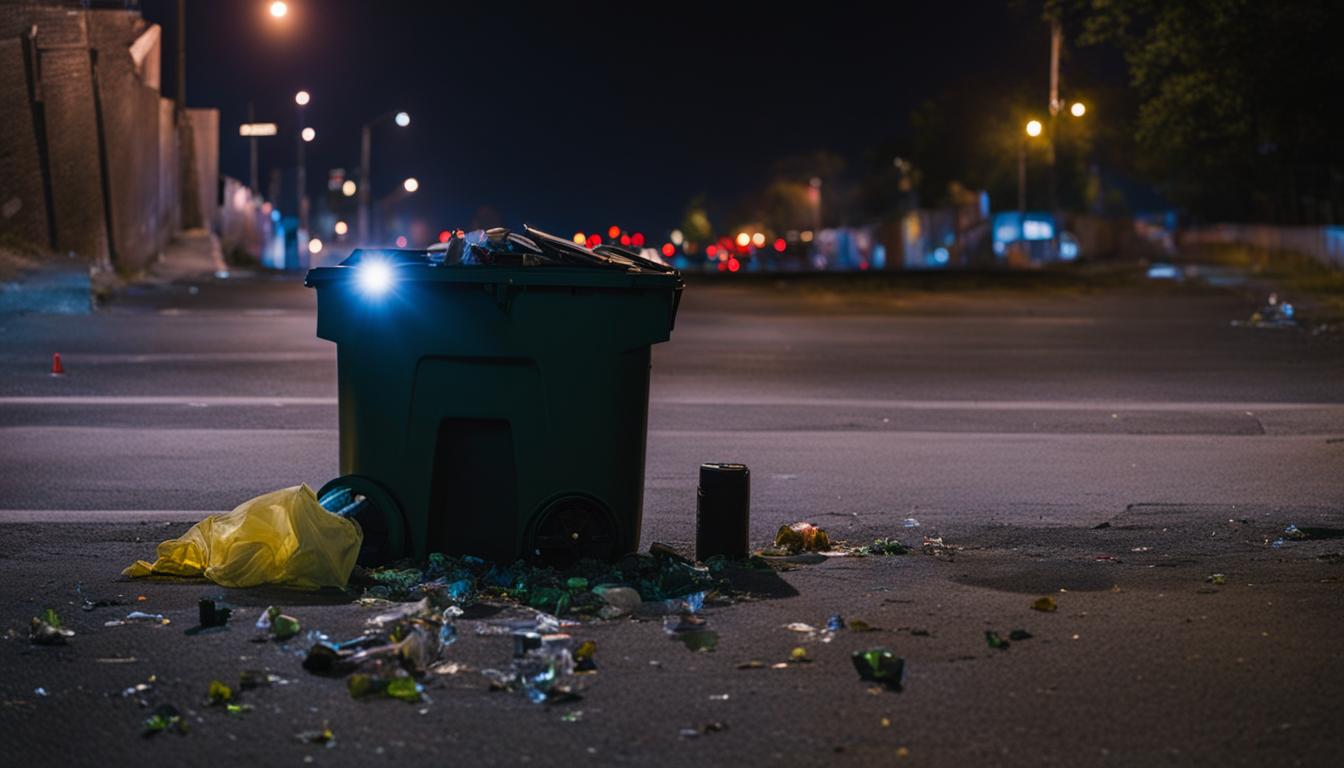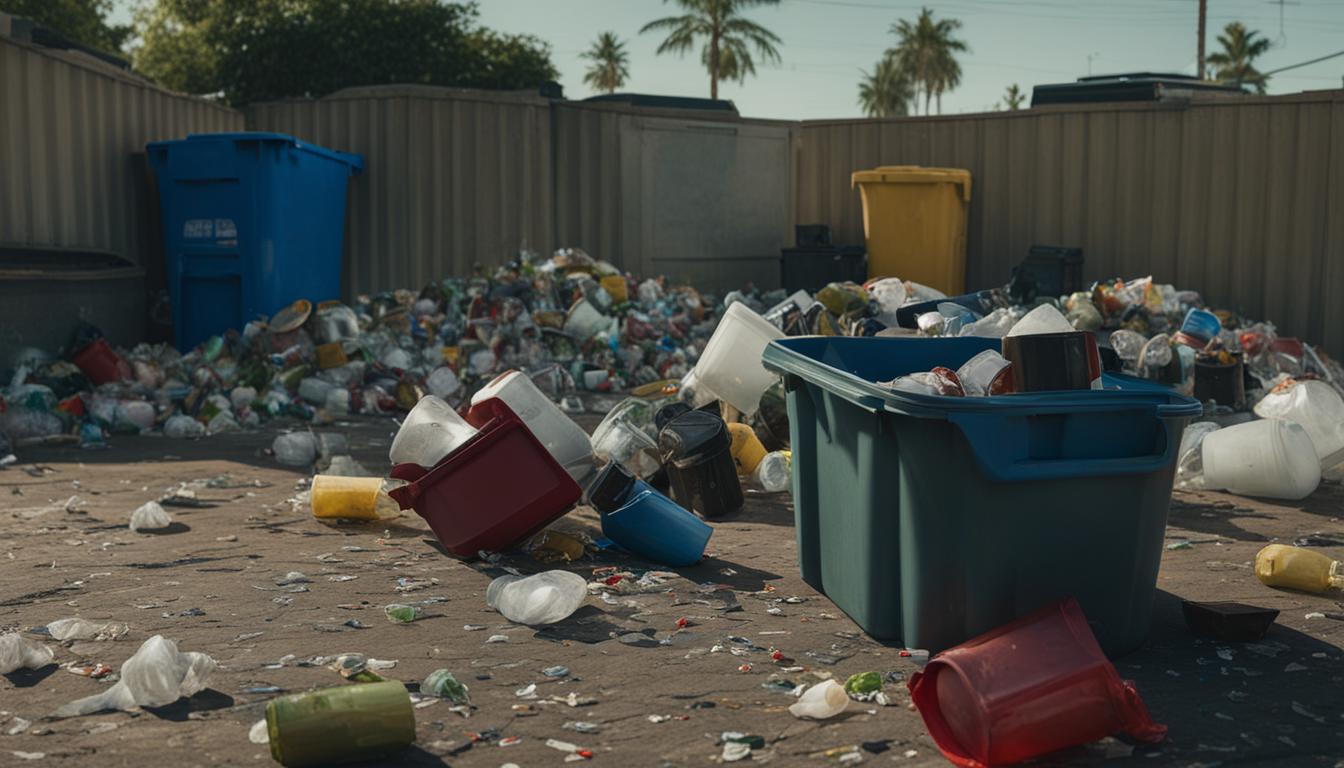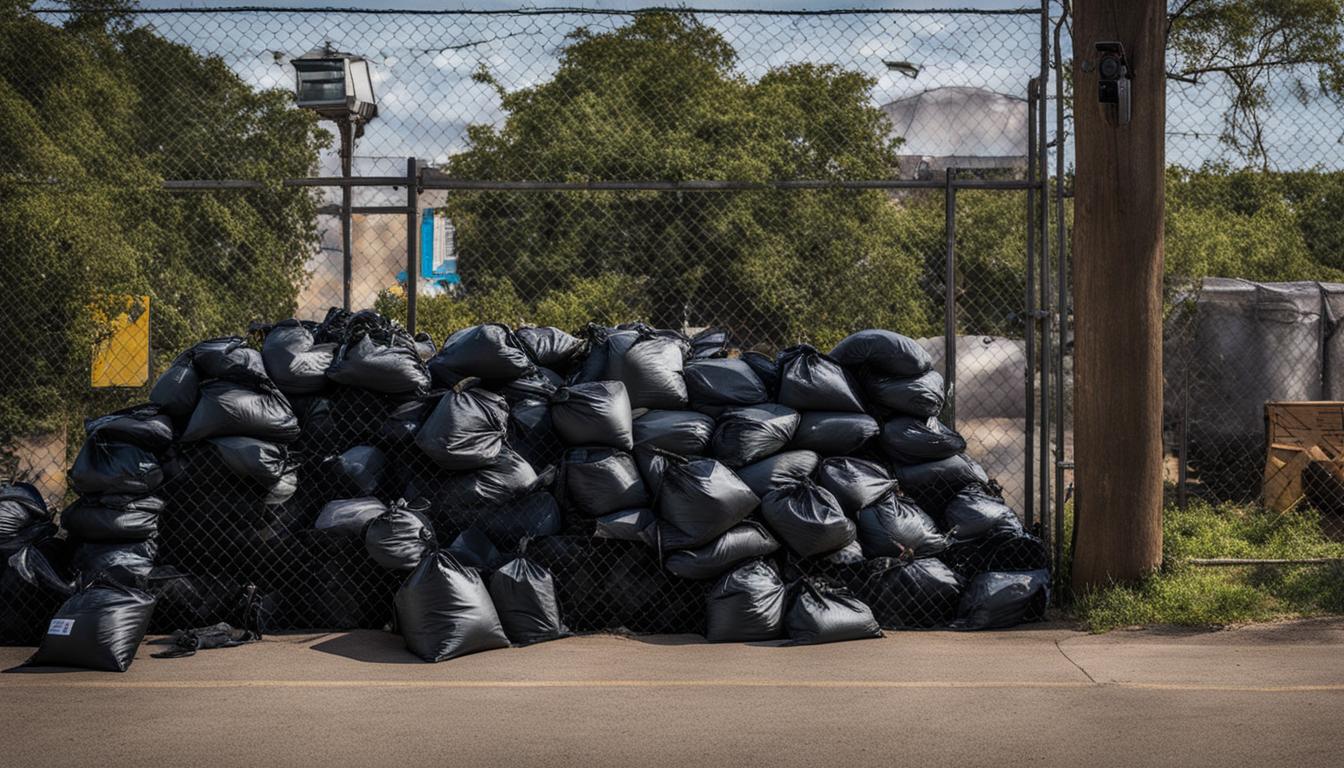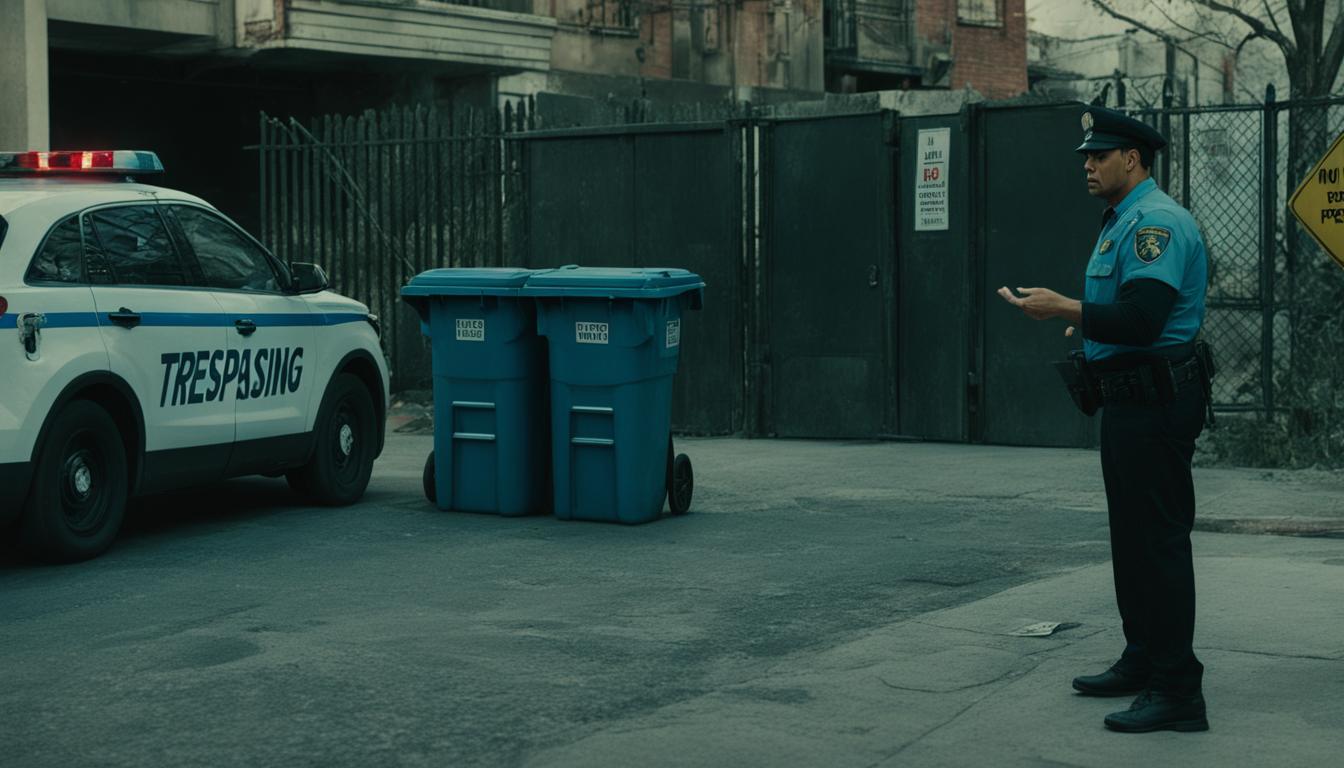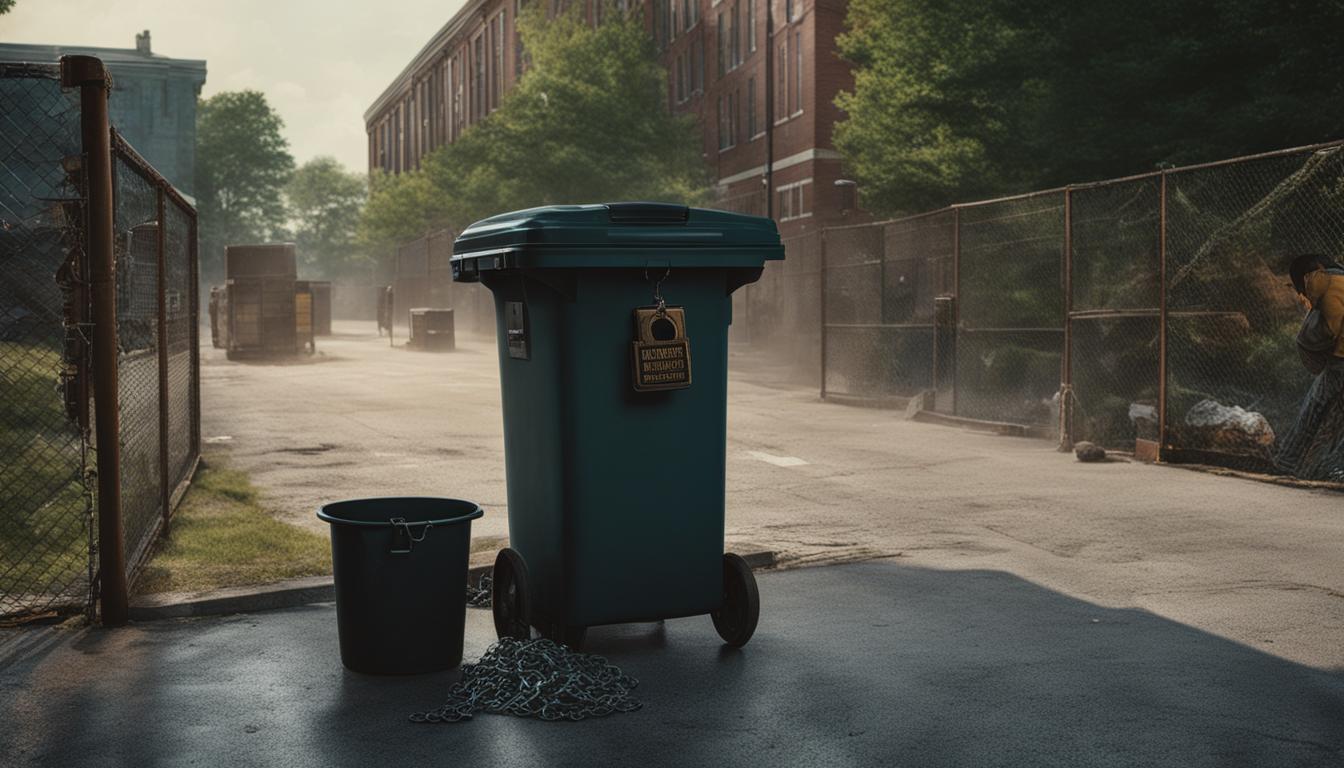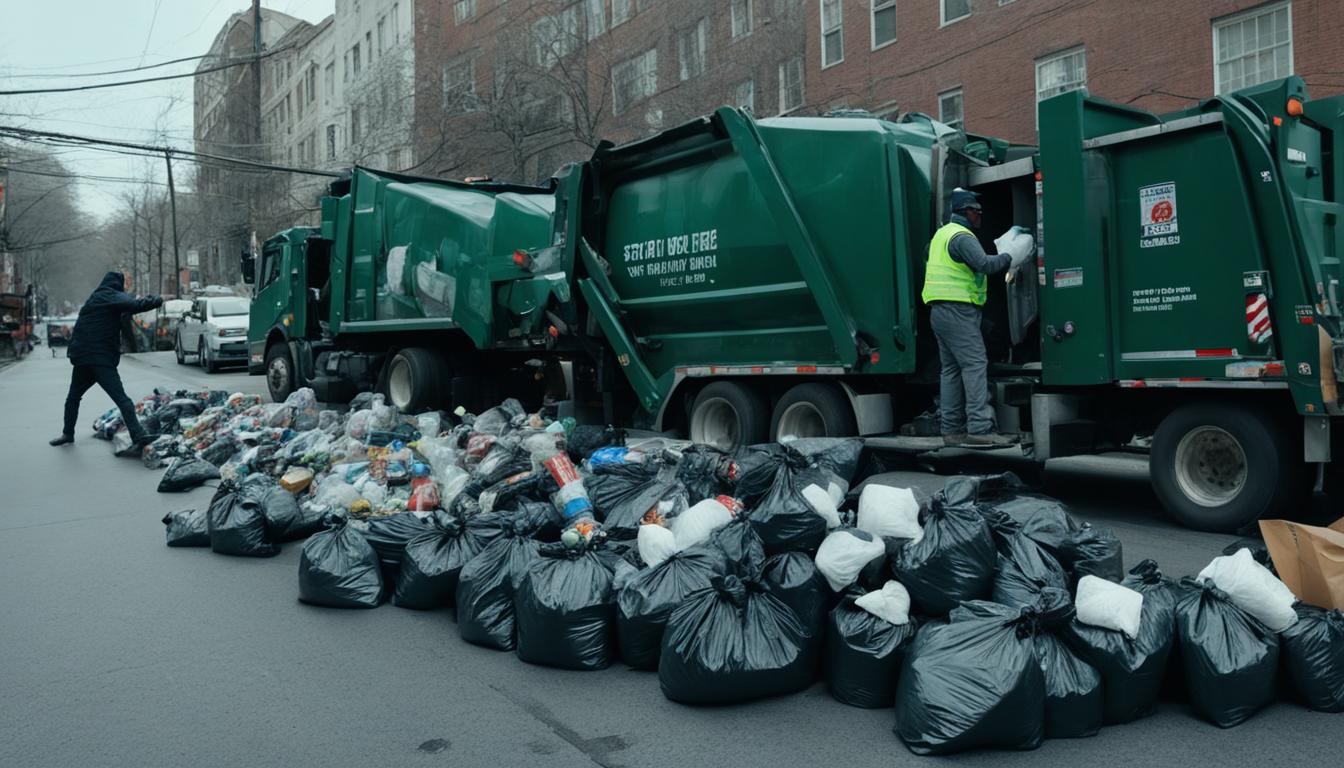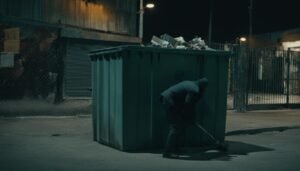Disclosure: This Post Contains Affiliate Links; We earn a commission on purchases.
Are you curious about the legality of dumpster diving and trash picking in Illinois? It’s important to understand the laws and regulations surrounding these activities before you venture into someone else’s trash. In this article, we’ll explore the specific laws in Illinois and discuss your legal rights when it comes to trash disposal.
Key Takeaways:
- Dumpster diving and trash picking are generally legal in Illinois.
- A U.S. Supreme Court Decision in 1988 established that trash placed by the curb is considered public domain and does not have an expectation of privacy.
- While there are no specific statewide laws or regulations regarding dumpster diving or trash picking in Illinois, trespassing laws still apply.
- It’s important to respect private property rights and only engage in dumpster diving or trash picking in public areas.
- Protect your privacy by responsibly disposing of items containing personal information.
Illinois Laws on Dumpster Diving and Trash Picking
When it comes to dumpster diving and trash picking, Illinois has specific laws that govern these activities. Understanding the legal rights and regulations for trash disposal is important to ensure compliance and avoid any potential legal issues.
Illinois Dumpster Diving Laws
In Illinois, dumpster diving and trash picking are generally legal. This is due to a U.S. Supreme Court ruling in 1988, known as California vs Greenwood. The ruling established that trash placed by the curb for pickup is considered public domain and does not have an expectation of privacy.
While dumpster diving is legal in Illinois, it’s important to note that some states and cities have enacted local ordinances that make trash picking illegal. However, in Illinois, there are no specific statewide laws or regulations regarding dumpster diving or trash picking.
It’s always advisable to check local ordinances and regulations to ensure compliance with the law. By being aware of any potential restrictions, individuals can engage in dumpster diving and trash picking without violating any laws.
For a clearer understanding of the legal landscape surrounding dumpster diving and trash picking in Illinois, refer to the following table:
| State | Statewide Laws on Dumpster Diving and Trash Picking | Local Ordinances |
|---|---|---|
| Illinois | No specific statewide laws or regulations | Varies by city/county |
As the table demonstrates, dumpster diving and trash picking laws can vary between states and even within different local jurisdictions. Therefore, it’s advisable to be familiar with the specific regulations and ordinances of the area where you plan to engage in these activities.
Privacy Rights and Trespassing Laws in Illinois
In Illinois, individuals have limited privacy rights when it comes to their trash. Once trash is placed by the curb for pickup, it is generally considered public domain and does not have an expectation of privacy. However, trespassing laws still apply, and individuals can be warned or arrested if they enter private property to go through trash without permission. It is important to respect private property rights and only engage in dumpster diving or trash picking in public areas.
While privacy laws regarding trash in Illinois acknowledge that discarded items lose their expectation of privacy, trespassing laws are in place to protect residents’ rights. Entering private property without permission is considered trespassing, regardless of the intent. Therefore, it is crucial to respect the boundaries of private property and avoid entering someone’s property to access their trash.
When engaging in dumpster diving or trash picking, follow these guidelines to ensure you stay within the bounds of the law:
- Focus on public areas: Stick to trash cans located in public areas such as sidewalks or alleys.
- Avoid crossing property lines: Do not enter private property or cross any barriers to access trash bins.
- Respect “no trespassing” signs: If a property displays a “no trespassing” sign, do not attempt to access the trash on that property.
- Do not cause damage: Avoid damaging any property, including trash bins or surrounding areas.
- Leave no trace: Clean up after yourself and ensure that the area remains tidy after going through the trash.
By adhering to these guidelines, you can practice dumpster diving or trash picking responsibly while respecting both privacy rights and trespassing laws in Illinois.

Potential Risks and Benefits of Dumpster Diving
Dumpster diving can have both risks and benefits. On the one hand, it provides an opportunity to find discarded items that are still usable or valuable. Many people have discovered valuable antiques, working electronics, or perfectly good furniture through dumpster diving. This can be especially beneficial for individuals on a tight budget or those who enjoy repurposing discarded items.
However, it is important to be aware of the legal implications before engaging in dumpster diving. While dumpster diving and trash picking are generally legal in Illinois, individuals should exercise caution and respect private property rights to avoid legal complications.
Risks of Dumpster Diving
One potential risk of dumpster diving is trespassing. Although dumpster diving itself is legal, entering private property without permission to access dumpsters can be considered trespassing under Illinois law. If caught trespassing, individuals may face legal consequences such as fines or even criminal charges.
Another risk is violating privacy rights. While discarded trash may be considered public domain, searching through certain types of trash that retain an expectation of privacy could lead to legal issues. For example, going through trash bags located within the confines of private property, such as a backyard or a fenced-off area, could potentially violate privacy laws in Illinois.
It is crucial to be mindful of these risks and understand the specific laws and regulations in your local area before engaging in dumpster diving. Familiarize yourself with Illinois trespassing laws and privacy laws regarding trash to ensure you stay within legal boundaries.
Benefits of Dumpster Diving
Despite the risks, dumpster diving can offer numerous benefits. Aside from finding valuable items, it also promotes recycling and waste reduction. By rescuing discarded items and giving them a second life, dumpster divers contribute to reducing the amount of waste that ends up in landfills.
Dumpster diving can also be an environmentally friendly alternative to purchasing new items. Instead of supporting the production of new goods, dumpster divers can find what they need by reusing discarded items, thus reducing the overall demand for new resources.
Moreover, dumpster diving can be a rewarding and exciting hobby for those who enjoy the thrill of the hunt and the joy of finding hidden treasures. It can foster a sense of creativity as individuals repurpose or upcycle items they find, transforming them into something new and unique.
Protecting Your Privacy and Personal Information
When it comes to disposing of trash, it is crucial to prioritize the protection of your privacy and personal information. While trash may be considered public domain once it is placed by the curb for pickup, there are still risks associated with identity theft and other privacy violations. Items such as discarded mail, utility bills, credit card and bank statements, and receipts can contain sensitive information that could potentially be used against you.
To safeguard your privacy, it is recommended to take proactive measures before disposing of such documents. One effective method is shredding or destroying any documents that contain personal information. This ensures that even if someone goes through your trash, they will not find anything sensitive or valuable.
“Identity thieves can often use discarded financial statements and personal documents to assume your identity, leading to devastating consequences.”
Furthermore, it is essential to be cautious of inadvertently sharing personal information through disposal methods. Avoid throwing away documents without first checking their contents and removing any sensitive information. This holds true not only for paper documents but also for any digital devices, such as hard drives or thumb drives, that may contain personal data. Properly wiping or destroying these devices can prevent unauthorized access to your information.
By taking these precautions, you can minimize the risk of privacy breaches and protect yourself from potential harm. It is important to remain vigilant and prioritize your privacy rights, even when disposing of seemingly insignificant items.
Proactive Steps to Protect Privacy:
- Shred or destroy documents with personal information before disposal
- Review the contents of each document before discarding
- Safely dispose of digital devices that may contain personal data
- Consider using secure or locked trash bins for added protection
- Stay up to date with privacy laws and regulations in Illinois
By following these guidelines, you can ensure that your privacy remains intact, even in the realm of trash disposal. Taking proactive steps is essential to safeguard your personal information from falling into the wrong hands.
| Privacy Protection Actions | Benefits |
|---|---|
| Shredding documents | Prevents identity theft and unauthorized access |
| Reviewing contents before disposal | Ensures no sensitive information is inadvertently shared |
| Safely disposing of digital devices | Prevents data breaches and unauthorized access |
| Using secure trash bins | Enhanced protection against potential privacy breaches |
| Staying informed about privacy laws | Allows for better understanding and compliance |
Guidelines for Responsible Dumpster Diving
If you choose to engage in dumpster diving in Illinois, it is essential to do so responsibly and respectfully. By following these guidelines, you can ensure that you are within the bounds of the law:
1. Understand the Dumpster Diving Laws in Illinois
Before you embark on any dumpster diving activities, familiarize yourself with the current dumpster diving laws in Illinois. While dumpster diving is generally legal in the state, it is vital to stay updated on any changes or local ordinances that may impact your activities. Stay informed and comply with all relevant laws and regulations.
2. Respect Private Property Rights
Always remember that dumpster diving does not grant you permission to trespass or enter private property without proper authorization. Respect the boundaries of private property and only conduct dumpster diving in public areas or with the owner’s consent.
3. Do Not Make a Mess
When engaging in dumpster diving, it is essential to maintain cleanliness and cleanliness. Be mindful of the area around the dumpster and avoid creating a mess or litter. Leave the site as you found it to minimize any negative impact on the environment or property.
4. Handle Trash Safely
Exercise caution when handling dumpster contents to ensure your own safety. Wear appropriate protective gear such as gloves and closed-toe shoes to prevent any injuries or exposure to hazardous materials. Avoid sharp objects, broken glass, or any items that may pose a risk.
5. Respect Others’ Privacy
Although dumpster diving is generally legal in Illinois, be mindful of others’ privacy. Avoid sharing or publishing any personal or sensitive information that you may come across during your dumpster diving activities. Respect the privacy of others and prioritize their consent and confidentiality.
6. Leave No Trace
Always clean up after yourself and leave the dumpster area in the same or better condition than you found it. Dispose of any waste or unwanted items appropriately and responsibly. Show respect for the environment and neighboring properties by leaving no trace of your dumpster diving activities.
7. Be Mindful of Local Regulations
In addition to state laws, be aware of any local regulations or ordinances that may govern dumpster diving in specific areas within Illinois. Some municipalities may have their own rules or restrictions, so it is crucial to research and comply with these additional guidelines.
Remember, responsible dumpster diving involves adhering to the law, respecting property rights, ensuring safety, and maintaining cleanliness. By following these guidelines, you can engage in dumpster diving activities in Illinois responsibly and enjoy the potential benefits it may offer.
Conclusion
In conclusion, dumpster diving and trash picking are generally legal in Illinois. According to the U.S. Supreme Court ruling in California vs Greenwood, trash placed by the curb for pickup is considered public domain and does not have an expectation of privacy. While Illinois does not have specific statewide laws or regulations regarding dumpster diving, it is essential for individuals to be aware of privacy rights and trespassing laws.
Respecting private property and disposing of trash responsibly are crucial aspects to consider. Although individuals may legally go through trash, it is important to remember that trespassing laws still apply. Unauthorized entry onto private property to search through trash without permission can result in warnings and potential legal consequences.
Protecting personal privacy and information is another important consideration. Even though trash may not have an expectation of privacy, there is still the risk of identity theft or privacy violations. To safeguard personal information, it is recommended to shred or destroy documents containing sensitive data before disposing of them.
By following guidelines for responsible dumpster diving and being mindful of legal rights, individuals can engage in this activity while staying within the bounds of the law in Illinois.
Source Links
- https://residentnews.net/2020/04/02/is-it-legal-for-someone-to-go-through-your-trash/
- https://www.legalmatch.com/law-library/article/is-dumpster-diving-illegal.html
- https://www.mystateline.com/news/illinois/is-dumpster-diving-legal-in-illinois/

Subscribe to Our Newsletter

